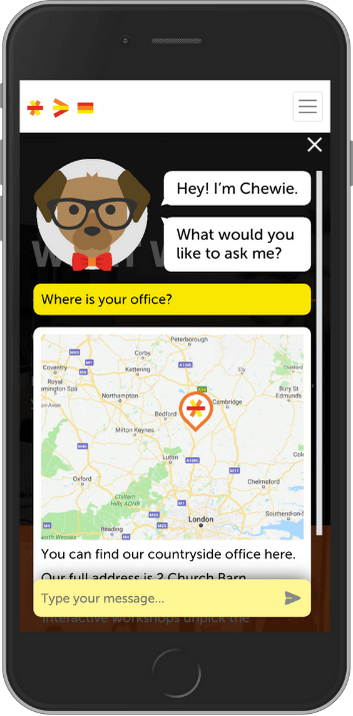We're almost half way through 2021 and digital isn't going anywhere. 97% of HCPs want either all virtual or a mix of virtual and in-person meetings even after the pandemic ends. Here are our five top ways to support HCPs digitally.
1. Invest in e-learning
The past year has been an opportunity for people to develop and grow, whether that be on a personal or professional level. Most HCPs said pharma companies are increasingly providing education on how to better treat patients remotely and help them manage their conditions in light of COVID-19 but there is still a way to go in digital education.
HCPs are eager to engage with pharma on-demand and on their own terms. Bringing together your training resources onto an e-learning platform meets this need perfectly, allowing individuals to tailor their training to their own needs and learn whenever and wherever they choose. We suggest reviewing all your training materials and generate new ones using a variety of content formats to suit all types of learning styles (e.g. audio, video, text and visuals).
If you don’t have a specific e-learning space, consider how this content can be used to shape your content marketing plan. Alternatively, now would be a good time to invest in digital education. At earthware we have recently built Acumen. Acumen uses e-learning, medical education events, webinars and closed professional networking groups to help you connect with HCPs and provide the information they want, whenever, wherever and however they wish to receive it.

2. Embrace webinars
In the absence of physical meetings and conferences, webinars are a great way to share content digitally. You can hold and attend webinars from your home, and they can have the same level of discussion and learning as an in-person session, with added features such as polls to increase engagement.
Depending on the topic, webinars can have a lifetime beyond the live event. They can be recorded for viewing at a later date, making them ideal for ongoing lead generation activities. The recording can be edited to make shorter videos for your content marketing activities, while questions raised at the event can prompt subsequent webinars, marketing initiatives and even product development.
Many media partners offer webinar services, where they will market, facilitate and host the event, for a fee. But you can also run your own DIY webinar, ‘broadcasting’ via platforms such as Zoom, and capturing registrations using a webform connected to your existing CRM or dedicated platforms such as Eventbrite.
3. Take meetings remote
Face-to-face meetings are still rare, but digital interactions have been a huge success, with 97% of HCPs wanting either all virtual or a mix of virtual and in-person meetings even after the pandemic ends.
There are many great free tools out there. We use Microsoft Teams but an increasingly popular one is Zoom which allows meetings with up to 100 people on it's free plan. We would always recommend video calls over audio for a more personal experience.
You could even create or use a booking system where customers can book a time slot. This can save time going back and forth arranging meetings. We would recommend Hubspot which has this feature for free but there are many alternatives available, or if you would like to talk about something bespoke then get in touch.
4. Support customer services with chatbots
We have heard from our healthcare clients how customer services teams in many therapy areas are still inundated with queries, and with less capacity to answer them as employees work from home. Chatbots are an opportunity for healthcare businesses to engage more effectively and efficiently with healthcare professionals (HCPs). By handling basic medical information queries, such as questions about dosing, a chatbot can provide immediate answers at the point the information is needed (e.g. at the point of prescription or dispensing). This frees up considerable time for medical information teams to handle more complex queries and support customers. Find out more about chatbots.

5. Create case studies
Bringing your products to life using case studies is a great way to increase engagement. While they are ‘off the road’, recruit your field sales teams to collate and craft these for you, showcasing benefits for the healthcare professionals and patients you support.
It’s an opportunity to be creative too: case studies can be produced in a variety of ways such as video (we would recommend Adobe Premiere), interviews, podcasts or even through Virtual Reality like a recent project of ours!
If you want to find out more about any of these ideas and how we can help, get in touch.
